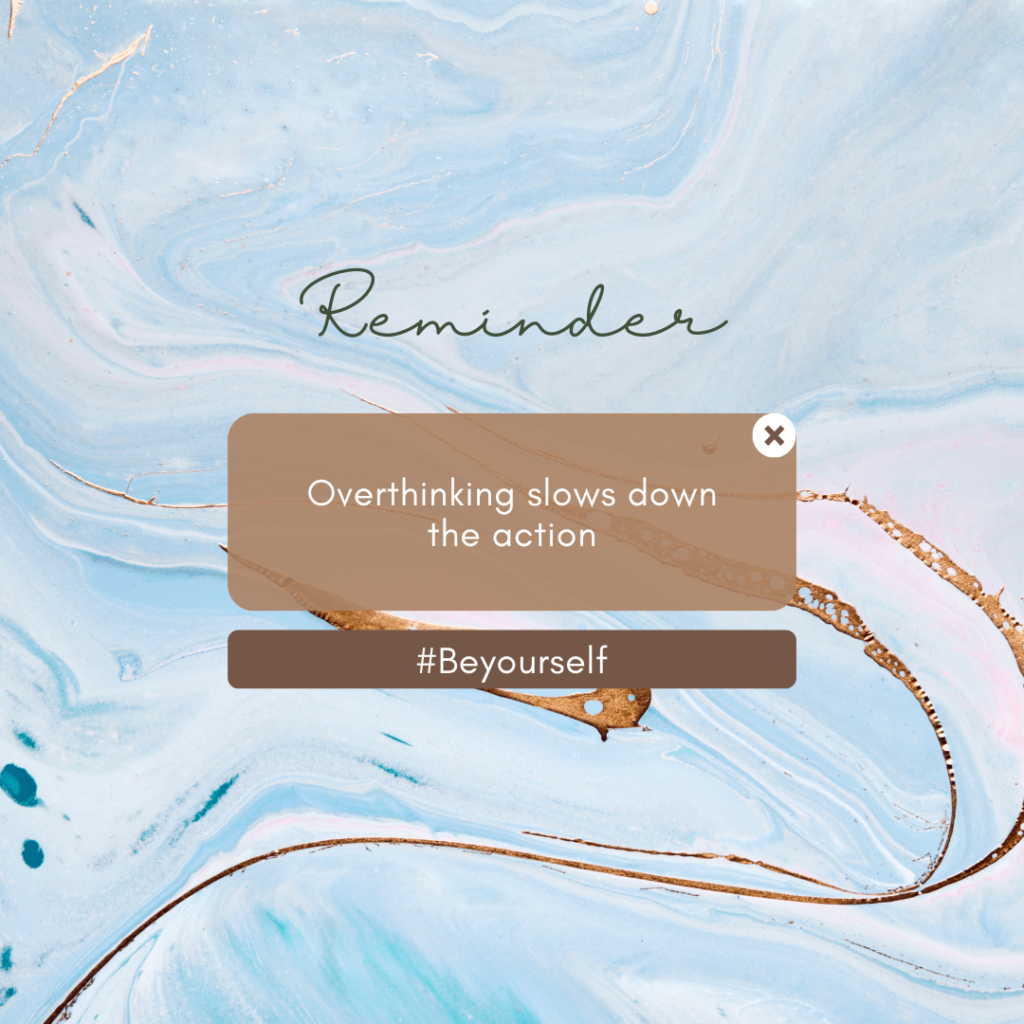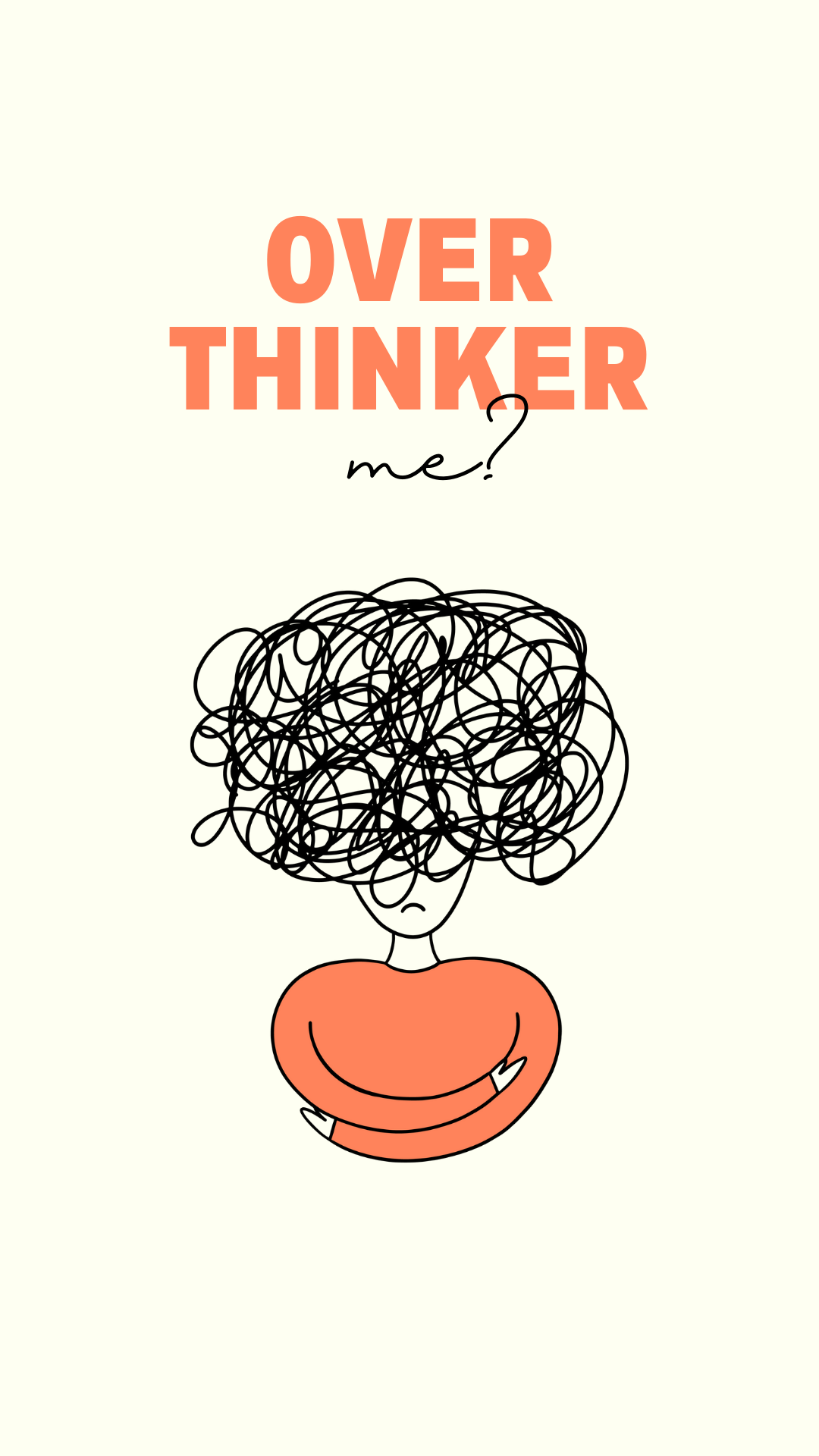Picture this: You’re lying in bed, ready to sleep after a long day. As you close your eyes, a single thought enters your mind: “What if I didn’t lock the front door?” Suddenly, your mind spirals into a frenzy of questions. “Did I turn off the stove? Did I reply to that email? Did I make a mistake at work today?” The more you try to silence these thoughts, the louder they become, consuming your peace of mind. Welcome to the intricate world of overthinking. In this blog post, we’ll delve into another common situation where overthinking takes hold, uncovering the intricate web of thoughts that ensnare us and exploring effective strategies to break free and regain control of our minds.
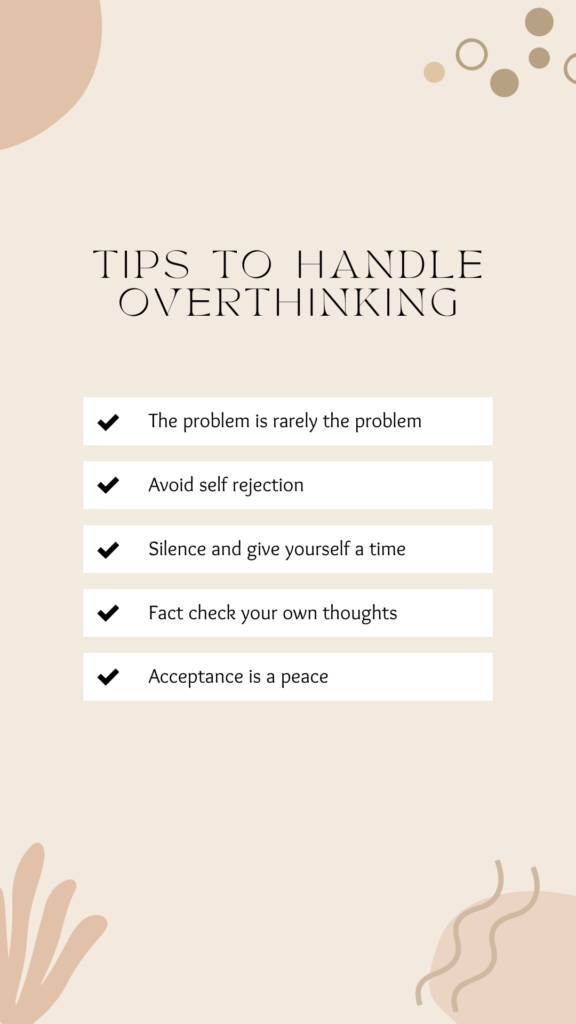
Okay, let’s Imagine another scenario: You’ve just had a conversation with a colleague at work, and as you walk away, a nagging thought enters your mind. “Did I say the right thing?” You begin to question every word that left your lips, dissecting your tone, analyzing your body language, and imagining all possible interpretations of the conversation. The questions keep piling up: “Did I offend them? Did they think I was incompetent? Maybe I should have said this instead… or that?” And so it begins—the relentless cycle of overthinking. In this blog post, we’ll navigate the treacherous terrain of overthinking, exploring the labyrinthine thought patterns that entrap us and discovering ways to find clarity and peace amidst the chaos.
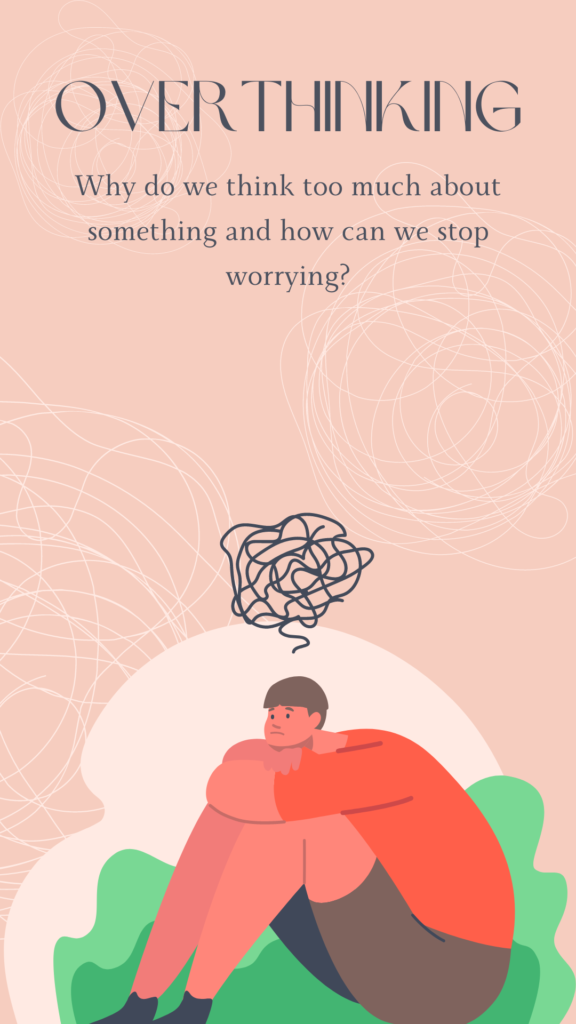
Confession time: As an overthinker, I find myself caught in a perpetual cycle of overanalyzing and second-guessing. Whether it’s a simple decision, a social interaction, or even a mundane task, my mind has a way of spiraling into a maze of endless questions. “What if I said the wrong thing? What if I make a mistake? Did I consider all possible outcomes?” The barrage of inquiries can feel overwhelming, trapping me in a mental labyrinth where clarity seems elusive. In this blog post, I’ll candidly explore my own tendencies as an overthinker, shedding light on the inner workings of an overactive mind. Join me on this introspective journey as we unravel the complexities of overthinking and discover practical strategies to cultivate a more peaceful and balanced mindset.
Overthinking can be likened to a labyrinth, with our thoughts becoming trapped in an endless loop. It starts innocently enough with a single worry or concern. However, rather than addressing the issue head-on, our minds begin to dissect every possible outcome, constantly questioning and analyzing every detail. This can quickly escalate into a vicious cycle of negative thoughts, self-doubt, and anxiety.
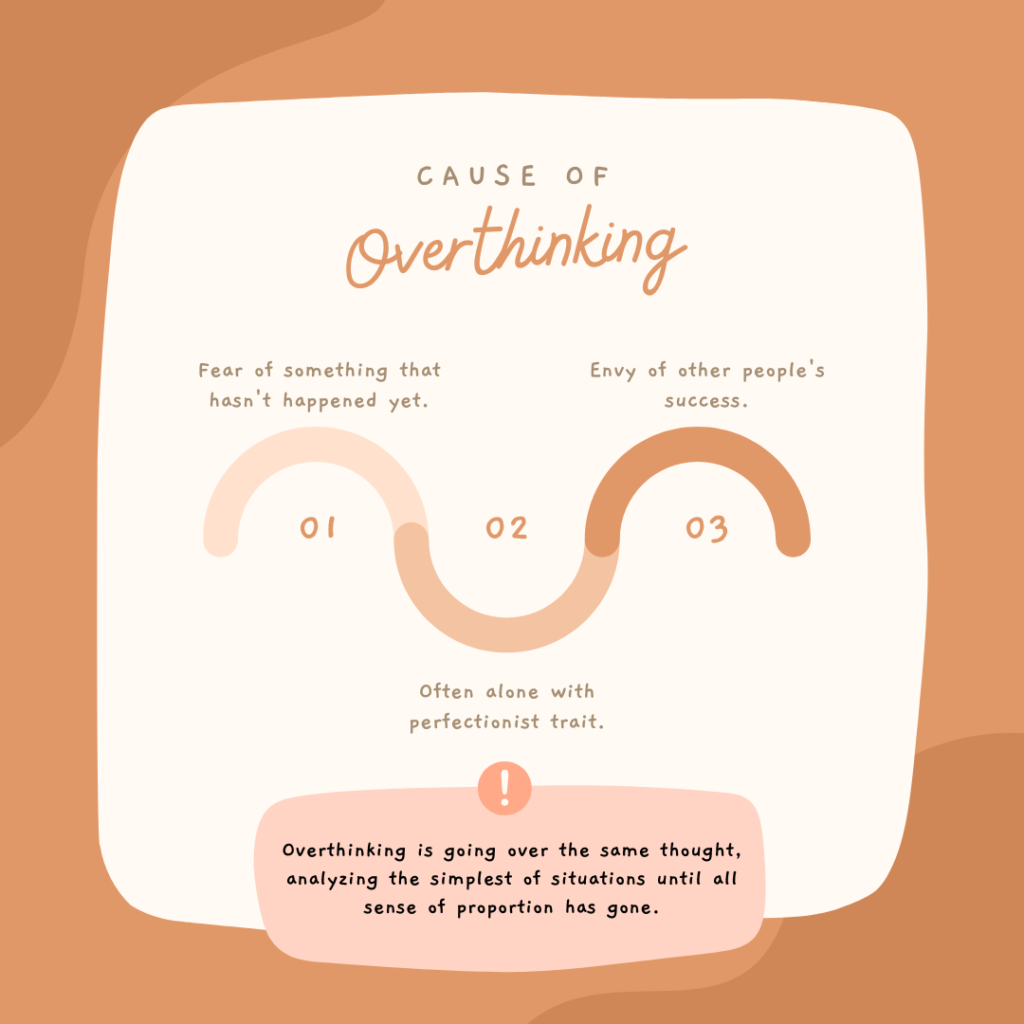
Causes of Overthinking:
Several factors contribute to overthinking. One common cause is perfectionism, where individuals feel the need to analyze every decision in order to avoid mistakes or failure. Past traumas or negative experiences can also fuel overthinking as a defense mechanism to protect oneself from future harm. Additionally, societal pressure, the fear of judgment, and the constant comparison to others in the age of social media can contribute to an overactive mind.
Consequences of Overthinking:
Overthinking is not merely a harmless habit; it can have significant negative consequences on our well-being. Excessive worrying and mental rumination drain our energy and can lead to chronic stress, anxiety disorders, and even depression. Overthinking also hampers decision-making abilities, as we become paralyzed by endless possibilities, afraid of making the wrong choice.
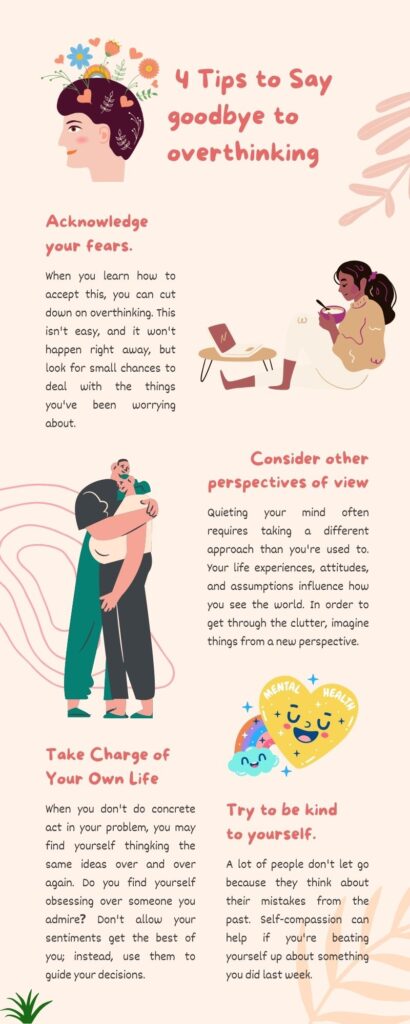
Breaking Free from Overthinking:
While overcoming overthinking requires effort and self-awareness, it is certainly achievable. Here are some practical strategies to help break free from the mind’s endless maze:
- Recognize and challenge your thoughts: Become aware of when you are overthinking and consciously challenge the validity of your thoughts. Ask yourself if there is evidence supporting your worries or if you are simply getting caught up in a cycle of negativity.
- Set limits for decision-making: Avoid dwelling on minor decisions. Set a specific time limit for making choices and trust your instincts. Remember, not all decisions need to be perfect; sometimes, good enough is sufficient.
- Practice mindfulness and grounding techniques: Engage in activities that bring you into the present moment, such as meditation, deep breathing exercises, or taking a walk in nature. Grounding yourself in the present helps redirect your focus away from overthinking.
- Seek support: Share your concerns with a trusted friend or family member. Sometimes, talking through your thoughts with someone else can provide a fresh perspective and help alleviate anxiety.
- Take action: Instead of getting stuck in an endless loop of thoughts, take action toward finding solutions. Break down tasks into manageable steps and tackle them one at a time, focusing on progress rather than perfection.
- Cultivate self-compassion: Be kind to yourself and practice self-care. Understand that everyone makes mistakes and that overthinking will not change the outcome. Treat yourself with the same kindness and understanding you would offer to a friend.
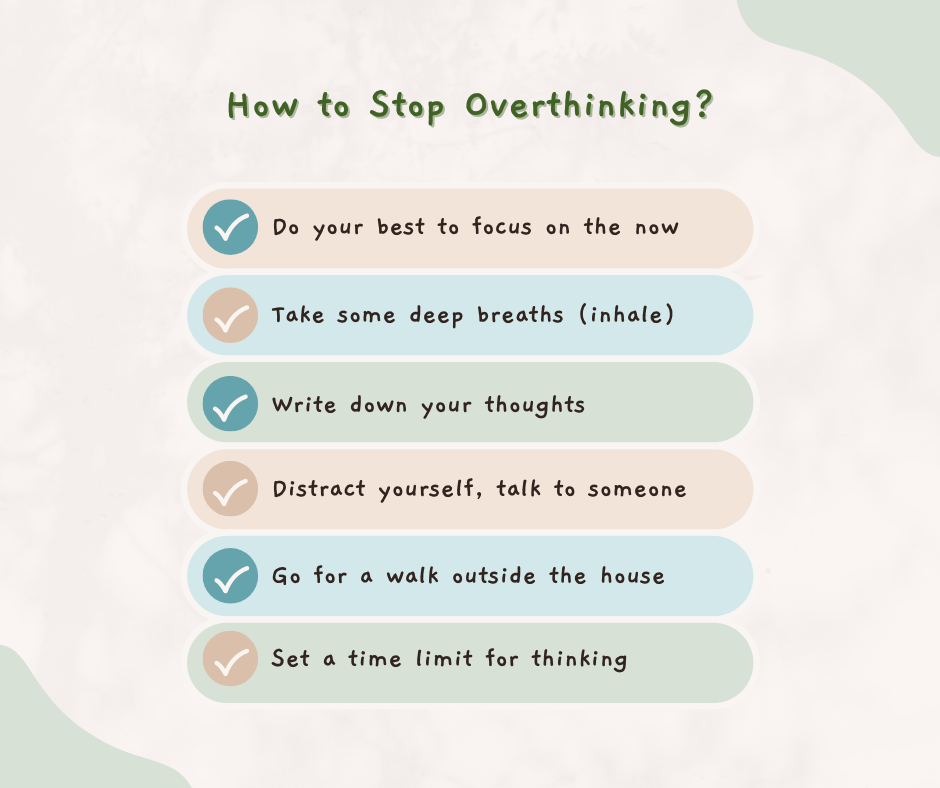
Overthinking can be a debilitating habit that prevents us from living fully and enjoying the present moment. By understanding the causes and consequences of overthinking, and by implementing practical strategies to break free from its grip, we can reclaim control over our thoughts and emotions. Remember, the key lies in recognizing when we are caught in the cycle of overthinking and consciously choosing to step out of it. Embrace a mindset of self-compassion, take action, and cultivate a sense of peace and clarity in your life.
Therapy and coaching offer invaluable support for individuals struggling with overthinking. By addressing underlying causes, providing effective techniques, and fostering a supportive environment, these modalities empower individuals to break free from the grips of overthinking and live more present, fulfilled lives. Whether seeking therapy or coaching, taking that step towards seeking support can be transformative on the journey towards managing overthinking patterns.
